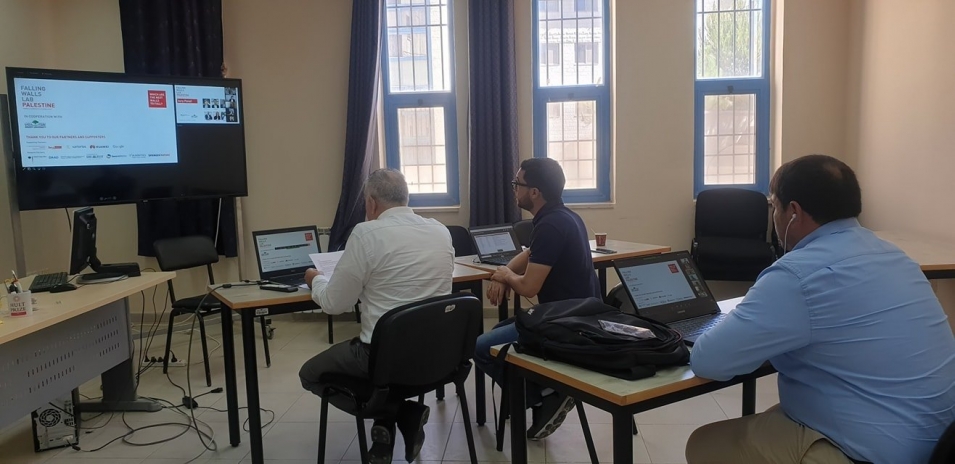Birzeit University hosts Falling Walls Lab Palestine 2020
For the fourth consecutive year, Birzeit University organized the Falling Walls Lab Palestine 2020, with thirteen participants pitching their innovations online. Bachelor’s and master’s students, postdocs, young professionals, entrepreneurs and junior professors presented their research or breakthrough ideas in three-minute slots to a high-caliber jury made up of experts from academia, business and the general public.
Ghada Dushaq’s academic research on ways to increase the sensitivity of receiver sensors in optical communications through the use of novel 2D materials won this year’s Falling Walls event. Second place was awarded to Mustafa Abu Jayyab, who explores the positive effects of balanced and healthy diets on five types of tumors. Obada Dwekat, who attempts to drastically increase the efficiency of solar water heaters by using paraffin, took third place
Established in 2009, on the twentieth anniversary of the fall of the Berlin Wall, the Falling Walls lab serves to break down walls that inhibit progress, advancement and unity by promoting innovation across the globe. Each year, academic institutions worldwide – including Birzeit University - host their own Falling Walls Lab to showcase the quality, diversity and passion of their region’s most innovative minds. The most intriguing presenters of the locally hosted Falling Walls Labs travel to the lab’s finale in Berlin, Germany, on November 8, 2020.
George Yerousis, the director of the university’s Innovation & Entrepreneurship Unit, said in his opening remarks, “With the COVID-19 outbreak, Birzeit University took a different approach this year and hosted the event virtually to enable our best innovators and researchers to present their topics safely as they show how their projects break walls to reach a better future.”
When the Berlin Wall fell in 1989, many great ideas were mobilized into action. They engendered action for a peaceful world and movement towards a prosperous, safe, and healthy future. Yerousis explained that Birzeit University holds this event yearly to provide a platform for young scientists, engineers, and professionals from across Palestine, allowing them to present their visions on how to make the world a better place for all of us and for generations to come.
Judging the excellent variety of three-minute presentations was a group of seven esteemed panelists that included Samah Abu Assab, an assistant professor in the Faculty of Business and Economics; Hani Shtayyeh, an associate professor in the Faculty of Pharmacy, Nursing and Health Professions; Suhail Sultan, the director of the master’s program in Business Administration; Majdi Mafarjeh, an associate professor in the Department of Computer Science; Majd Khalifeh, the acting CEO at Flow; Ali Mustafa, the financial and administrative manager at Palestine-India TechnoPark; and Atef Shkokani, the program coordinator at the Innovation and Entrepreneurship Unit.







